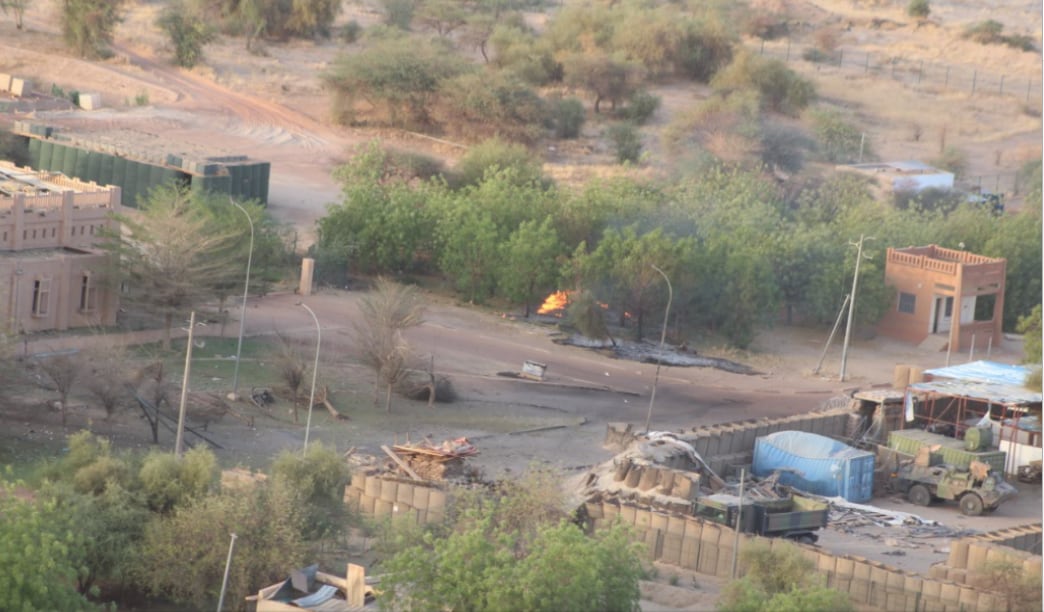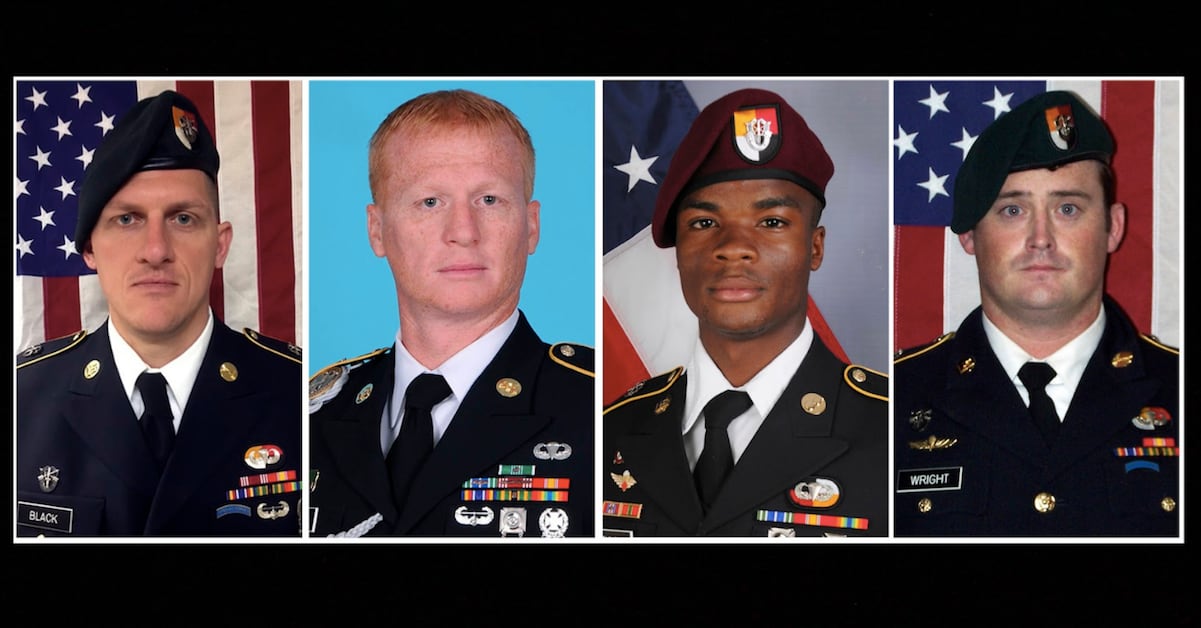Four Nigerien soldiers joined a single Army Green Beret in a “bold flanking maneuver” against jihadi militants, allowing their countrymen and U.S. counterparts enough time to withdraw during the deadly ambush near the Niger-Mali border on Oct. 4, 2017, which took the lives of four Americans and five Nigeriens.
Later, a Nigerien soldier “exposed himself to a hail of friendly fire” to stop a quick reaction force that “mistook the team for the enemy and immediately opened fire with its heavy machine guns,” reads a Bronze Star with valor citation that was among award documents recently released to Army Times.
After the ambush ended, a Nigerien who joined in the flanking movement refused evacuation, instead opting to search for his fallen comrades in the sparse African scrub.
Six Nigeriens, including two killed in the ambush by a force twice their size, were given U.S. medals for combat actions and valor. It’s the only case of foreign partners receiving valor awards that officials found in Army personnel files dating back to the 1991 Gulf War, though other elements of the Defense Department approved similar decorations in the intervening years.
The medals were awarded in October 2019 and requested by Army Times immediately, but they were only released through the Freedom of Information Act process in May.
“Yes, this is a rare event. It is the only case like this in recent history that [Army Human Resources Command] has in its files,” said Fonda Bock, a spokesperson for command, which approved the awards.
RELATED

Several Nigeriens were wounded in the ambush near the village of Tongo Tongo, including a soldier who suffered a gunshot to the neck, but they continued fighting alongside their American counterparts, the citations stated.
U.S. Ambassador to Niger Eric Whitaker and U.S. Special Operations Command boss Gen. Richard Clarke participated in the award ceremony two years ago.
SOCOM’s Africa component originally nominated the Nigerien soldiers for their awards “to formally recognize their courageous efforts” during the ambush, Bock said.
The Army Decorations Board recommended approval of the awards, and the citations were signed by Maj. Gen. Jason Evans, who led Human Resources Command at the time, Bock added.
The awards highlight the actions of Nigerien troops from the country’s 1st Security and Intelligence Battalion and 433rd Special Intervention Company during the ambush outside the village of Tongo Tongo.
The decorations included the two Bronze Stars, one Army Commendation Medal with Valor and three Army Achievement Medals.
There were four Nigerien soldiers who survived the ambush and received awards: Cpl. Moustapha Kakalé, Soldier 2nd Class Ibrahim Assoumane, Soldier 2nd Class Abdou Kane and Soldier 2nd Class Kamel Issoufou Oumar.
Adjutant Chef Soumana Bagué and Soldier 2nd Class Abdoul Rachid Yarima were the two Nigeriens who received posthumous awards. Because their names are redacted from the documents, it’s unclear who received which citation.
RELATED

Also killed in the ambush were four Americans: Staff Sgt. Bryan Black, Sgt. 1st Class Jeremiah Johnson, Staff Sgt. Dustin Wright and Sgt. La David Johnson. Black and Wright were Green Berets.
Jeremiah Johnson and Black were posthumously awarded Bronze Stars with valor. Two Silver Stars were also posthumously awarded to Wright and La David Johnson.
La David Johnson was separated from the larger U.S. team alongside two Nigerien partners when they were unable to reenter their vehicle due to concentrated enemy fire.
“An estimated 20-30 dismounted enemy personnel were bounding on line towards SGT Johnson’s position,” the Pentagon’s investigation into the incident reads.
Johnson and the two Nigerien partners began evading by foot. Both Nigeriens were cut down by enemy fire while bounding away with Johnson, according to a collection of medical forensics, terrain analysis and other evidence cited in the investigation.
Johnson made his final stand under a single thorny tree — the only cover in the area — and returned fire against the jihadis, who had been pursuing him and his teammates with a vehicle-mounted DShK machine gun.
Kyle Rempfer was an editor and reporter who has covered combat operations, criminal cases, foreign military assistance and training accidents. Before entering journalism, Kyle served in U.S. Air Force Special Tactics and deployed in 2014 to Paktika Province, Afghanistan, and Baghdad, Iraq.





